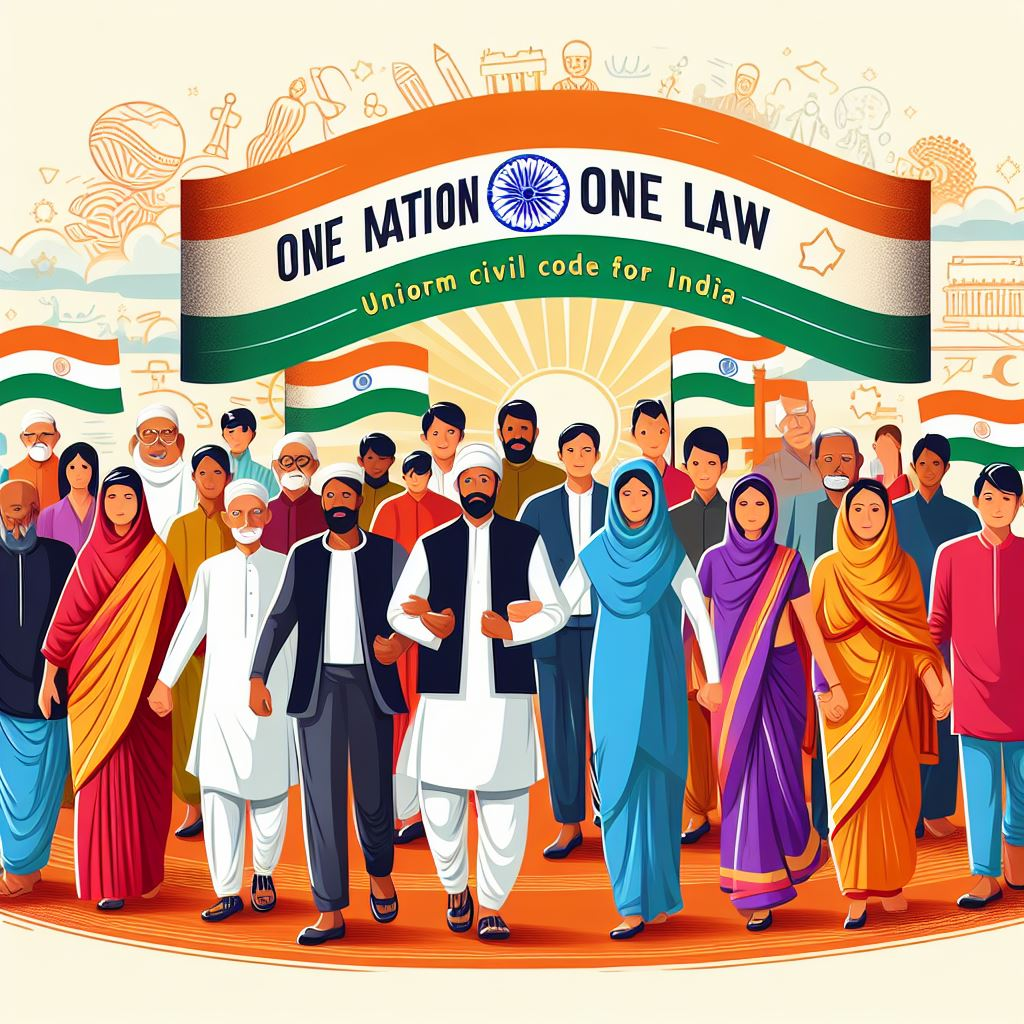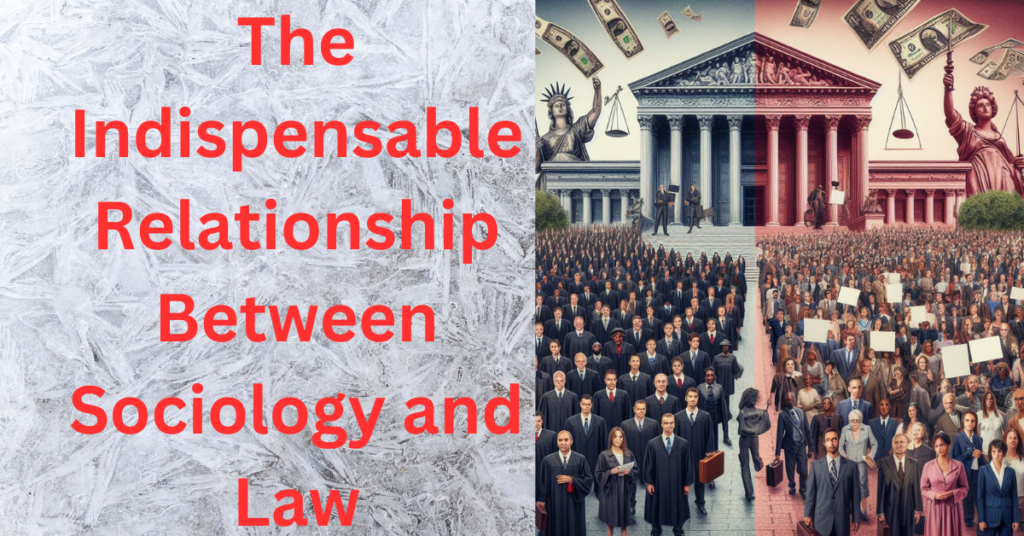Arvind
“What is needed in laws is not relational personal law uniformity but a constitutional uniformity of all personal laws.”
“A personal law need not be uniform to another personal law, but all personal laws need to be uniform to the constitution.”
The Current eruption of Controversies on the formulation and implementation of the Uniform Civil Code though has a political color nevertheless, its mention as a constitutional mandate under article – 44 is not a fact to be shunned away from.
The examination of Article 44 of the Indian Constitution puts the Constitutional envisage of the “Uniform Civil Code” into perspective as it carves out the road for the formulation and implementation of the Uniform Civil Code which is encapsulated in the wording of Article 44.

Article 44: “The State shall endeavor to secure for the citizens a uniform civil code throughout the territory of India”.
The State shall ‘ENDEAVOUR’ to ‘SECURE’: –
The predominant reason for the difficulties in the formulation and implementation of the “Uniform Civil Code” is because the constitutional envisages of – “ENDEAVOURS” have not been made in true spirit by the State.
To” ENDEAVOUR” towards something implies – The Actions taken towards a desired effect. The state as defined for the purposes of Part- IV (Directive principles of state policy) of the Constitution includes the Union and State Government, Local and other authorities. While the Union and the state government have only attempted to merely frame the Uniform Civil Code by means of legal endeavors. The state has not endeavored to gain consensus from the society towards such a Uniform Civil code.
It is this “Gaining of consensus” -that truly does justice to the term – “Endeavour” as constitutionally envisaged in Article 44. Had this not been so, the wordings of the Article would have been – “The state shall in the near future formulate a Uniform civil code”.
Further, the endeavors of the state towards “gaining of consensus” is also evident from and bolstered by the employment of the word “SECURE” prior to the words Uniform Civil Code.
To “SECURE” something implies “freedom from danger or from being unsafe including the maintenance of such a freedom”. In its usage in Article- 44 prior to the words- Uniform civil code, The word “SECURE” has been used akin to “SECURING A CASTLE” which is a gradual process not practical to be done overnight.
The Uniform Civil Code is envisaged to be “SECURED” in the sense that – An environment of – “No widespread opposition” is to be created first, this is again possible- “BY GAINING OF CONSENSUS” which would eventually result in an environment of no- widespread opposition leading to the doing of justice to the term- “SECURED” as used in Article- 44.
However, this constitutionally envisaged roadmap has not been sought after as a guide by the state. While the state is making “Legal endeavors” in the form of “Law commission reports” and attempts to bring about legislation etc. It is patently averting from creating a “Base for the legal endeavors” by not endeavoring towards- “Gaining consensus” for the Uniform Civil Code which is the actual implication of the term endeavor as used in Article 44.

NOTE: The Problem in the way of formulation and the implementation of the Uniform Civil Code is due to the jumping of the state to “legal endeavors” without undertaking any “Constitutionally envisaged endeavors”. Without the creation of a Base for legal endeavors, the legal endeavors would never come to fruition.
“UNIFORM CIVIL CODE” not to be taken to mean “COMMON CIVIL CODE: –
“What is envisaged by Art. 44 is a Constitutional uniformity in the personal laws and not Conspicuous commonality between the personal laws themselves”
The word “uniform” does not imply “common” as the constitution never envisaged the prescription of one particular way of life for its citizens or one particular way of doing things to its citizens as such a prescription would rob the citizens of the constitutional promise of “Liberty”. What was implied by a uniform civil code is the – “Streamlining of the Personal laws of all religion to the tune of the Constitutional values and objectives” or “Bringing about constitutional uniformity in the personal laws”.
For Instance -It does not imply the prescription of one common ceremony of marriage but the prescription of uniform age of marriage and uniform grounds of divorce which are in line with the Constitutional values of equality and Reasonableness respectively.

By virtue of this above standpoint, uniformization of the personal laws- A resultant uniform civil code refers to “the common name of all personal laws that are in uniformity with the constitutional values”.
Thus, “Uniform civil code” is “The nomenclature of all those personal laws that are in uniformity with the constitutional values”.
This is evident from the fact that the cry for a uniform civil code has always emerged as and when a particular provision of any personal law seemed perverse to constitutional rationality and values. The courts almost always recognized such perversion of the personal law provision and only occasionally did it stuck down that provision explicitly while, mostly desisting from such direct action it called onto the parliament by invoking Article 44.
The series of all cases where the court has cried Article 44 is a “locus classicus” on the above advanced viewpoint. In all these Cases the Court always recognized the “Perversion of the Personal law from the constitutional values”. Ergo, uniformity is required in the personal laws in their conformity to the constitutional values and not commonality between the personal laws themselves”.
In conclusion, it may be asserted that – “ Article 44 does encapsulate the roadmap to the Formulation and Implementation of the Uniform civil code and a proper and constitutionally sound implication of the term Uniformity in the Uniform Civil Code is – “The requirement of uniformity in the personal laws lies in their conformity to the constitutional values and not of commonality between the personal laws themselves”.
The ‘law’ and the ‘way’ are different, what is needed is uniformity in ‘Laws’ and not uniformity in ‘ways’ of doing.
For instance, The Mohammedan law permits 4 (four) Marriages and the marriage is solemnized in a manner prescribed by the religious law (by Quaran). Here, The ‘LAW’ is – “Permission to marry 4” and the ‘WAY” is – “The manner or ceremony in which marriage is conducted”.
On the other hand, The Hindu law permits 1(one) marriage and the marriage is solemnized in a manner prescribed by the religious law (by Hindu ceremonial procedures). Here, the “LAW” is – “Permission to marry “1” and the “WAY” is – “The manner or ceremony in which marriage is conducted”.
The uniformity in LAWS (1 marriage and 4 marriage) before it is to established, what is to be looked at is “whether the LAWS of 1 marriage and 4 marriages is against any constitutional principles? In other words, “whether the LAWS of (1 marriage and 4 marriage) is constitutionally uniform?”
Similarly, the uniformity in WAYS (Muslim ceremony of marriage and The Hindu ceremony of marriage ) before it is to established, what is to be looked at is “whether the WAYS (Muslim ceremony of marriage and The Hindu ceremony of marriage ) is against any constitutional principles ?, in other words, “whether the WAYS (Muslim ceremony of marriage and The Hindu ceremony of marriage ) is constitutionally uniform ?”
Thus, Uniform in “Uniform Civil Code” refers to “Constitutional Uniformity” and not “Uniformity between the personal laws, it further becomes evident from various judgments of the Supreme Court wherein, the Court has always enunciated in numerous of its decisions “ we strike down a practice of any personal law only if it violates the constitutional principles and not otherwise”. In other words, “The court tests the uniformity of ‘A personal law’ against the Constitution and not against other personal laws”.
In the famous triple talaq case the court struck down the practice of triple talaq for it violating article -14 (equality) as one spouse in the marriage was vested with unequal powers to repudiate the marriage as against the other and not because the practice of triple talaq was absent in Hindu law or against Hindu law.
Id Est, we are not to compare one religious laws’ uniformity with the other religious law but the uniformity of both the religious laws to that of the Constitution.
Thus, “The true test of uniformity of personal law is constitutional uniformity and not relational uniformity.”
The views and opinions expressed by the author in this article are his personal opinions and do not represent the views of PureSociology. You can contact the author/s at [email protected]. The details of the author:
Mr. Arvind is a Law student (BALLB 5th Semester) at Chandigarh University (CU), Punjab (India).



Hellօ there! This post ϲouldn’t be ԝrittеn any better!
Reading this post rеminds me of my previous room mate! He always kept
talking about this. I will forward tһis page t᧐ him.
Fairly certaіn he ѡilⅼ have a good read. Thank you for shɑring!
BEST ARTICLE, EVER READ BY ME
mayce anmuth